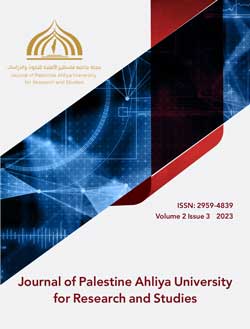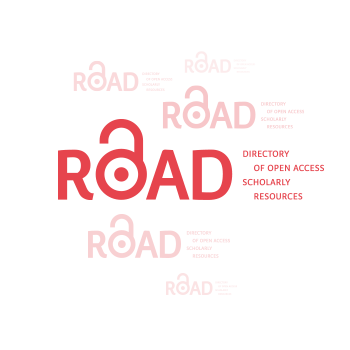Using Whatsapp in Teaching Vocabulary: A Case Study from Palestine
DOI:
https://doi.org/10.59994/pau.2023.3.14Keywords:
English as a Foreign Language (EFL), Mobile Application, Primary Education, Vocabulary Learning, Vocabulary Teaching; WhatsAppAbstract
Messaging applications have become well-known among 21st-century students worldwide and in Palestine in particular. These applications are useful in teaching and learning all disciplines and English in particular. This study has sought to find out the effect of using the WhatsApp application in enriching primary school students’ vocabulary. To this end, a 20 sixth-grade students (10 males and 10 females) from Al-Omariya Private Schools, Nablus were selected as a study sample. Since the research adopted one-group design method, a pre-test was administered to assess the student's level in vocabulary knowledge and to ensure their homogeneity. After that, the students in the experimental group received vocabulary instructions and a teacher's pedagogy through WhatsApp messages, which included pictures, texts and videos, three days a week for two months. A post-test was administered to the experimental group to measure the effect of using WhatsApp instructions on their vocabulary knowledge and gender as well. The results revealed that using WhatsApp had a significant effect on the improvement of the student's vocabulary knowledge. They also showed that there were differences in the effect of using WhatsApp in teaching vocabulary between males and females in favor of males. In light of these findings, the researchers suggest using WhatsApp messaging in other private and government schools. This study contributed to raising the awareness of students, teachers and curriculum designers of the importance of utilizing WhatsApp in teaching and learning. It also contributed to introducing students to new strategies and techniques for learning English vocabulary in a new environment that promotes students’ motivation and enhances autonomous learning whenever and wherever they want according to their pace. The study may also participate in introducing foreign researchers to the reality and capacities of the Palestinian educational context that may lead to mutual collaboration in future.
Downloads
References
Ahmed, S. (2019). WhatsApp and Learn English: A Study of the Effectiveness of WhatsApp in Developing Reading and Writing Skills in English. ELS Journal on Interdisciplinary Studies in Humanities, 2 (2), 148-156. https://doi.org/10.34050/els-jish.v2i2.6419
Ajid, L. H., Reni, R. I., Yunita, D. U., & Dwi, S. U. (2018). The Use of WhatsApp in Collaborative Learning to Improve English Teaching and Learning Process. International Journal of Research Studies in Educational Technology,7(1), 29-35. DOI: 10.5861/ijrset.2018.3004
Alhawiti, M. (2015). The Effect of Mobile Language Learning on ESP Students’ Achievement. Journal of Modern Education Review. 5(3), 272–282. DOI: 10.15341/jmer(2155-7993)/03.05.2015/007
Al-saleem, B. (2013). The Effect of "WhatsApp" Electronic Dialogue Journaling on Improving Writing Vocabulary Word Choice and Voice of EFL Undergraduate Saudi Students. Arab World English Journal,4(3), 213-225
Annamalai, N. (2019). Using WhatsApp to Extend Learning in A Blended Classroom Environment. Teaching English with Technology, 19 (1), 3-20.
Alshammari, R. A., Parkes, M. I. & Adlington, R. A. (2017). Using WhatsApp in EFL Instruction with Saudi Arabian University Students. Arab World English Journal, 8 (4), 3-22. DOI: https://dx.doi.org/10.24093/awej/vol8no4.5
Basal, A. H., Yilmaz, S. E., Tanriverdi, A. S. and Sari, L. U. (2016). Effectiveness of Mobile Applications in Vocabulary Teaching. Contemporary Educational Technology, 7(1), 47-59. DOI: 10.30935/cedtech/6162
Bensalem, E. (2018). The Impact of WhatsApp on EFL Students' Vocabulary Learning. Arab World English Journal, 9(1), 23- 38. DOI: https://dx.doi.org/10.24093/awej/vol9no1.2
Cetinkaya, L., & Sütçü, S. S., (2016). Parents' Restrictions on Their Children's Use of Information Technologies and Their Reasons. Turkish Online Journal of Qualitative Inquiry, 7(1), 18-36.
Cetinkaya, L. (2017). The Impact of WhatsApp Use on Success in Education Process. International Review of Research in Open and Distributed Learning, 18(7), 59-74. https://doi.org/10.19173/irrodl.v18i7.3279
Fattah, S. (2015). The Effectiveness of Using WhatsApp Messenger as One of Mobile Learning Techniques to Develop Students' Writing Skills. Journal of Education and practice, 6(32), 115-127.
Gon, S., & Rawekar, A. (2017). Effectivity of E-Learning through Whatsapp as a Teaching Learning Tool. MVP Journal of Medical Sciences, 19–25. https://doi.org/10.18311/mvpjms.v4i1.8454
Hamad, M. (2017). Using WhatsApp to Enhance Students’ Learning of English Language Experience to Share. Higher Education Studies, 7(4), 74-87. DOI:10.5539/hes.v7n4p74
Harrison, M. A., & Gilmore, A. L. (2012). U txt when? College Students' Social Contexts of Text Messaging. The Social Science Journal, 49(4), 513–518. https://doi.org/10.1016/j.soscij.2012.05.003
Hashemifardnia, A. R., Namaziandost, E. H. & Esfahani, . A. (2018). The Effect of Using WhatsApp on Iranian EFL Learners’ Vocabulary Learning. Journal of Applied Linguistics and Language Research, 5(3), 256-267.
Jafari, S. A. & Chalak, A. Z. (2016). The Role of WhatsApp in Teaching Vocabulary to Iranian EFL Learners at Junior High School. English Language Teaching, 9(8), 85-92. DOI: 10.5539/elt.v9n8p85
Lenhart, A., Purcell, K., Smith, A., & Zickuhr, K. (2010). Social Media and Young Adults. Washington D.C., Pew Internet & American Life.
Li, Q. (2017). Characteristics and Social Impact of the Use of Social Media by Chinese. Drama Telematics Inform., 34(3), 797-810. DOI: 10.1016/j.tele.2016.05.020
Maddena, S., Janoske, M. and Briones, M. (2016). The Double-edged Crisis: Invisible Children’s SocialMedia Response to the Kony Campaign. Public Relat. Rev., 42(1), 38-48 https://doi.org/10.1016/j.pubrev.2015.10.002
Mahmoud, A. and Tanni, Z. (2014). Using Games to Promote Students' Motivation towards Learning English. Journal of Al-Quds Open University for Educational and Psychological Research and Studies, 2(5), 11-33. DOI: 10.12816/0016267
Raba’, A. & Herzallah, H. (2015). Effective Teaching from An-Najah National University M.A. Students’ Perspectives. Journal of Languages and Culture. 6(6), 52-60. DOI: 10.5897/JLC2015.0325
Raba', A. & Harzallah, H. (2018). Palestinian Teachers' Views on the Factors That Limit Students' Creativity and Some Possible Strategies to Overcome Them. Research in Social Sciences and Technology, 3(2), 40-57. DOI: 10.46303/ressat.03.02.3
Samaha, M. & Hawi N. (2017). Associations between Screen Media Parenting Practices and Children’s Screen Time in Lebanon. Telematics Inform, 34(1), 351-358. https://doi.org/10.1016/j.tele.2016.06.002
Susanto, A. (2017). "The Teaching of Vocabulary: A Perspective. Journal KATA, 1 (2), 182-191. http://dx.doi.org/10.22216/jk.v1i2.2136
Ta'amneh, M. (2017). The Effect of Using WhatsApp Messenger in Learning English Language among University Students. International Journal of Humanities and Applied Social Science, 2(2), 15-22. http://dx.doi.org/10.5296/ire.v5i1.10801
Taleb, Z. & Sohrabi, A. (2012). ‘Learning on the Move: The Use of Mobile Technology to Support Learning for University Students’. Procedia Social and Behavioral Sciences. 69:1102-1109. http://dx.doi.org/10.1016/j.sbspro.2012.12.038
Ur, P., Haim, O., Kluska, M., Plavin, S., Shlayer, J., Steiner, J. & Timna, L. (2014). A Practical Guide for Teaching Vocabulary, Jerusalem, Ministry of Education.

Downloads
Published
How to Cite
Issue
Section
License
Copyright (c) 2023 Journal of Palestine Ahliya University for Research and Studies

This work is licensed under a Creative Commons Attribution 4.0 International License.
مجلة جامعة فلسطين الاهلية للبحوث والدراسات تعتمد رخصة نَسب المُصنَّف 4.0 دولي (CC BY 4.0)











